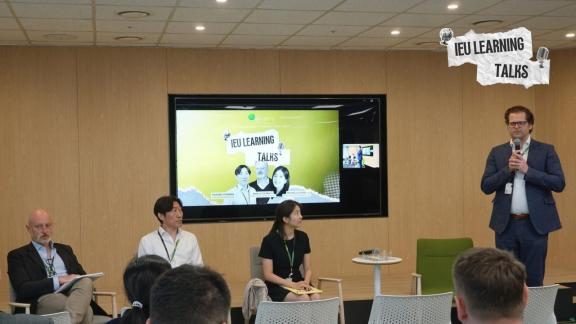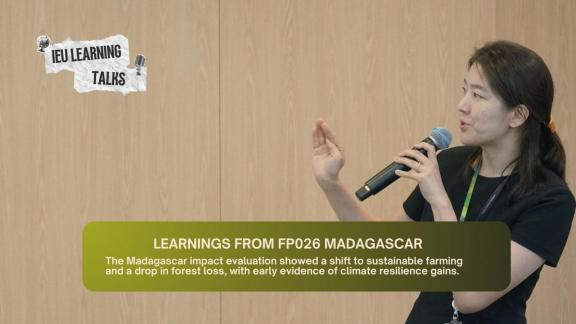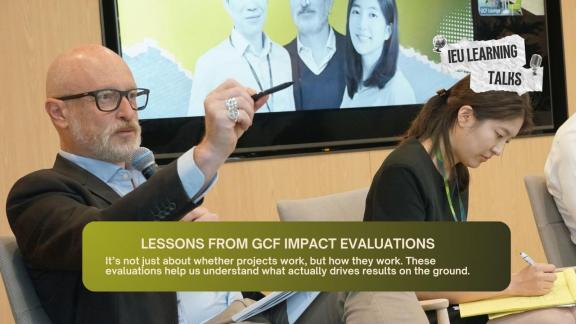IEU Learning Talk highlights insights from impact evaluations in Madagascar and Belize
On May 28, the Independent Evaluation Unit (IEU) hosted its latest Learning Talk, spotlighting insights from two GCF-funded projects evaluated under the Learning-Oriented Real-Time Impact Assessment (LORTA) programme.
The session, moderated by Marco D’Errico, IEU Impact Evaluation Officer, featured Michell Dong and Susumu Yoshida, who presented findings from impact evaluations in Madagascar (FP026) and Belize (FP101), respectively. Together, the two cases offered grounded reflections on how project design, implementation, and context shape outcomes in climate-vulnerable settings.
Madagascar (FP026): Forest conservation and climate-smart agriculture
Michell Dong, Impact Evaluation Specialist, presented early findings from an impact evaluation of the “Sustainable Landscapes in Eastern Madagascar (SLEM)” project, implemented in the Ankeniheny-Zahamena and Ambositra-Vondrozo forest corridors. While final results are still being analyzed, interim data revealed:
- Deforestation in project areas dropped from 3.2% to 0.8%, driven by behavioral shifts - households reduced reliance on forest resources for income - and more effective patrolling.
- Households are moving toward year-round sustainable farming instead of relying on short-term coping strategies.
- Adoption of complex conservation agriculture practices declined after project support, with female-headed households facing greater challenges in sustaining them.
- Incomes improved through production of cash crops, supported by stronger market engagement.
- Higher incomes were invested in education and assets, rather than food, indicating a focus on long-term resilience.
Michell also noted that households in project areas showed greater resilience to cyclones, suggesting improved capacity to cope with climate shocks.
Belize (FP101): Backyard gardening and food security
Susumu Yoshida, Evaluation Specialist for Implementation Science, shared endline findings from the “Resilient Rural Belize” project, which supported backyard gardening (BYG) as a tool for climate adaptation and food security.
Key results included:
- A 78% increase in household income, largely driven by crop and livestock sales, as well as higher agricultural wages.
- More diverse coping strategies in response to climate shocks, including asset sales, borrowing, and informal labor—indicating greater adaptive capacity.
- Improved food behaviors, including more frequent consumption of meat and poultry, and a reduction in sugary beverages and condiments. However, overall dietary diversity did not significantly change.
Susumu explained the randomized phase-in evaluation design, which allowed for strong attribution of impacts despite real-world implementation constraints.
What did we learn?
The session concluded with reflections on how LORTA evaluations support learning within GCF and beyond:
-
Planning evaluations early—before project approval—helps ensure alignment with goals and data collection cycles.
-
Implementation matters: Delays in project rollouts can weaken both outcomes and evaluability.
- Field insights—such as behavior change, uptake patterns, and unintended effects—add depth to quantitative data.
As Marco D’Errico summarized, “It’s not just about whether projects work, but how they work. These evaluations help us understand what actually drives results on the ground.”
For questions, contact:
- Michell Dong – mdong@gcfund.org
- Susumu Yoshida – syoshida@gcfund.org
Have any suggestions for the next Learning Talk topic? Contact Therese Gonzaga – tgonzaga@gcfund.org





